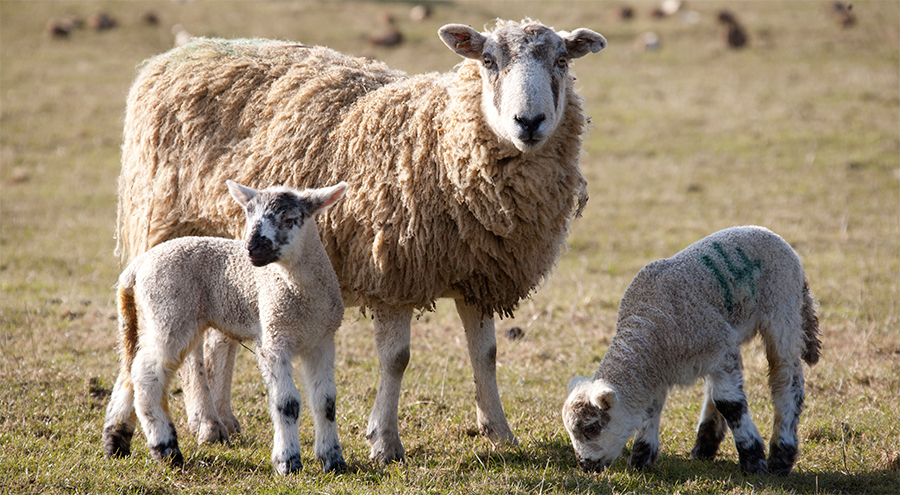
Farmers have expressed growing concern for the British lamb market as new season lamb prices have come under pressure in recent weeks.
“Late April typically sees the numbers of new season lambs increase, with prices adjusting through the season as increased supplies become available,” he said. “However, the last two weeks have seen prices fall by nearly 20 per cent and the rapid decline is symptomatic of the volatility faced by lamb producers. This is extremely worrying, as early lamb requires a premium to cover its increased cost of production.
“Early season lamb is a premium product that delivers a top quality eating experience for customers. If the market does not reflect the higher costs associated with supplying early lamb, sheep farmers will question the long term viability of producing this high-quality and iconic British product for the Easter market. Consumers tell us that they want to see British lamb on supermarket shelves today and in the future. I share the anxiety of many sheep farmers about any external pressures that may further depress the price of their lambs. If farmers don’t have confidence in production, then long term supply of home-grown lamb to consumers is going to be at risk.
“In recent years we have been highly critical of retailers who have promoted imported lamb when British lamb has been at its best and in plentiful supply. Therefore, all eyes will be on retailers to see if they will give our great British lamb pride of place on their shelves. In the coming days I will be writing to major players within the supply chain and I expect them to live up to the commitments to British lamb made in response to criticism in past years.
Farmers and consumers both want to see home-grown lamb on the shelves this year, and for years to come. We call on retailers to help make this happen.”
With next month traditionally regarded as the start of the prime season for lamb, Lyndon Edwards, Chairman of the NFU Cymru Livestock Board, said: "Retailers should be in no doubt that there will be no shortage of prime PGI Welsh lamb over the next 12 months."
Nearly 70 percent of shoppers trust the meat they buy in supermarkets either a lot or a fair amount, according to YouGov data released by BPEX. This compares with only 58 percent trusting the meat they are served in restaurants and 17 percent in fast-food outlets.
“Since Horsegate in 2013, supermarkets have worked hard to restore trust by sourcing more British meat and labelling the fact clearly—and their strategy is obviously working,” according to National Pig Association chairman Richard Lister.
“If foodservice companies want the public to trust them to a similar degree, the answer is staring them in the face. They should copy the retailers and serve British meat instead of imported meat from continental cold stores.”
Lyndon Edwards said: “NFU Cymru will use every possible opportunity over the coming weeks to ask retailers to confirm their commitments to sourcing Welsh and to outline our key asks.
“It is important to note, though, that the drivers that the lamb market faces are far more complex than simple retailer sourcing. Exchange rates, consumer demand - domestically and abroad, are other vital factors. Carcass balance for different markets is also important as a means of adding overall value.
“What is most important of all is the continued support of the public in ensuring that when they go to supermarkets and restaurants they make a point of asking for great tasting PGI Welsh lamb.”
